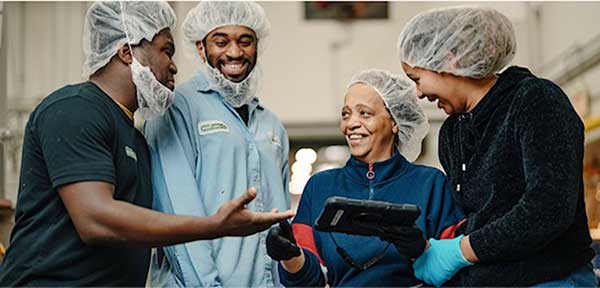Employees are empowered to create more meaningful work when given access to a healthy work environment and deliberate training.

By Zack Sosebee, Senior Vice President of Operations at QAD Redzone
The manufacturing industry is at a crossroads, facing changing employee demographics, growing technological advances and continued labor shortages. Leaders can press on using the same methods they’ve utilized for decades, or they can choose to blaze a new path forward in the hopes of uncovering success amid continued adversity. Those who choose to revitalize their outdated processes will find success by creating strong foundational skill sets for their employees and frontline workers. This means going beyond the hard skills needed to tackle day-to-day job requirements, creating instead a well-rounded employee that also has the soft skills necessary for team collaboration and factory leadership.
We are beyond the days when training programs and onboarding is simply a box to check, only focusing on what’s needed to get employees up-to-speed as fast as possible. With more thorough, well-rounded training programs, employees become more empowered to tackle their jobs more holistically, garnering additional success and productivity for themselves, their teams and the factory as a whole. Generating this mindset shift will also help change outdated perceptions of the manufacturing industry from a quick, easy means to a paycheck to a substantive, lifelong career path.
A well-established training program allows for constant access to education, designed to keep up with modern skills and ever-changing technology. Every year offers new technological advancements for a more efficient shop floor, and changes happen quickly, requiring fast learning and extensive support from management. This technology not only helps factories maximize productivity and profits, but also helps entice younger generations, especially Gen Z, to an industry typically seen as antiquated. Investing in the employee experience by adopting modern technology and employee training programs increases employee retention, enabling them to climb the ladder internally and make meaningful contributions to the organization over time.
2023 offers the chance to look at training through a narrow lens, scrutinizing every detail. The traditional idea of classroom training is a common pitfall for today’s manufacturing environments. Instead, the method proven to be most successful is on-the-job training (OTJ), bringing the process to the shop floor. It is now a “watch one, do one, teach one” mentality.
The most successful training comes from those programs organized in-house, as no one knows your organization better than tenured insiders. Task someone who is immersed in the daily operations and employee interactions to take on a training program. In order to best prepare new employees and upskill the existing frontline workers, training is no longer a brief, one week onboarding program. Some of the most successful training programs are highly focused and stretched out over a longer period of time, in some cases anywhere from one to three months. This ensures a thorough learning opportunity and the utmost attention to detail.
Many factors have played a role in manufacturing’s perceived decline, but it is our responsibility as leaders to open the doors to the next generation and set them up with a strong foundation for the rest of their career, giving them the ability to learn and grow in a factory setting.
Take the time to give employees an empowered voice and put the power back in the hands of the front line workers. In the current times of an impending recession and monumental labor shortage, it is more important than ever to invest in staff and give them an environment they can grow, learn and thrive in.

About the Author:
Zack Sosebee, SVP of Operations at QAD Redzone is responsible for the entire customer experience, including the coaching, implementation and support. Having joined QAD Redzone via Ignite Solutions, Zack was part of the early QAD Redzone team, focusing on building out the coaching organization and providing clear, sustainable, bottom-line results to each QAD Redzone customer.
Tune in for a timely conversation with Susan Spence, MBA, the new Chair of the ISM Manufacturing Business Survey Committee. With decades of global sourcing leadership—from United Technologies to managing $25B in procurement at FedEx—Susan shares insights on the key trends shaping global supply chains and what they mean for the manufacturing outlook.